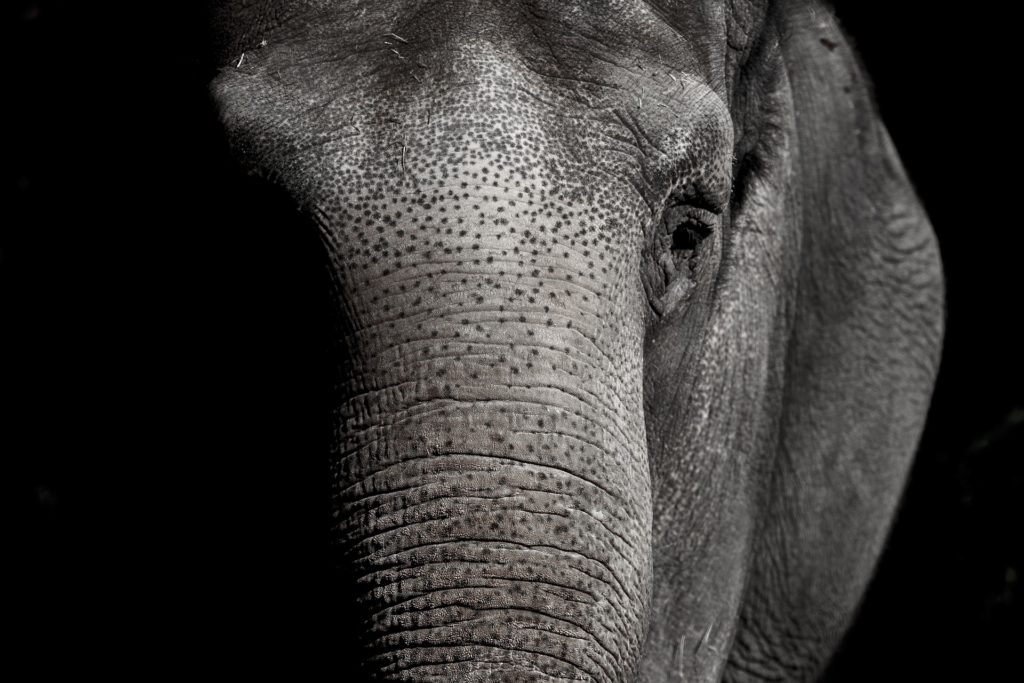I like to begin the year with Rumi’s poem “Elephant in the Dark.” Five men who have never seen an elephant go into a dark room where an elephant is standing. They each feel it, trying to guess what it is. However, each of them only feels one part of the elephant, and bases his guess off that one part. One man thinks the leg is a column, one thinks the ear is a fan, and so on. At the end, Rumi says that if all of them had gone in together, with candles, they could have seen the whole elephant. The poem comes from an old Indian fable; in the original version of the story, the men are blind. Here is Rumi’s take on it, translated by Coleman Barks:
Elephant in the Dark
Some Hindus have an elephant to show.
No one here has ever seen an elephant.
They bring it at night to a dark room.
One by one, we go in the dark and come out
saying how we experience the animal.
One of us happens to touch the trunk.
"A water-pipe kind of creature."
Another, the ear. "A very strong, always moving
back and forth, fan-animal."
Another, the leg. "I find it still,
like a column on a temple."
Another touches the curved back.
"A leathery throne."
Another, the cleverest, feels the tusk.
"A rounded sword made of porcelain."
He's proud of his description.
Each of us touches one place
and understands the whole in that way.
The palm and the fingers feeling in the dark are
how the senses explore the reality of the elephant.
If each of us held a candle there,
and if we went in together,
we could see it.
On the first day, I have students take turns reaching inside a small opening of a sealed box to feel some random objects inside. This is admittedly weird, and fun. They can’t say what they think is in the box until everyone has a turn. I give them a chance to discuss their thoughts with others, and I listen to their guesses before we look in the box.
They have a variety of answers, some very funny, but no one has ever guessed all four objects: a Styrofoam skull, a garland of small, cloth roses, a miniature bongo drum, and a rainstick. (I’m always surprised at how engaging this simple guessing game is for tenth graders.)
Then we read the poem and discuss. One question I like to ask about Rumi’s men is this: Were they each just wrong, or somehow right, or both?
They were wrong, in the big picture—they didn’t realize the elephant was an elephant—but they were each right in a way. They used what they knew to take their best guess. And if they had had the chance to work together, Rumi says, they would have solved it.
This is each of us. We approach every situation with our own perspectives, only. How can we not? It is what it means to be a human being; it is what we bring to the world. And when we work together, we can think on higher levels.
(This, incidentally, is also the foundation of my thinking about Reading Responses. Each student responds with her own perspective, choosing the category that speaks to her. But in discussions, the students combine their individual, smaller speculations to create a deeper, fuller understanding of the text. It takes both: the individual and the group.)
It is a lesson for me to relearn each year as well. Every time I share this poem, I learn something new from the students. Last year, one student suggested that the cultures in the curriculum of our class (World Literature) were each like one of the men, trying to figure out the truth about life from just one perspective. I had never thought of it that way—I had always focused on the smaller viewpoint of the individual in the world.
Approach each reading like you approached the box, I tell the students. Be curious and alert. Use what you already know. Take your best guess. Don’t be afraid to be wrong. Work together.


This is a lovely way to start the year. So relevant for your journey in world literature. literature. I am looking forward to filling in for you as you embark on more adventures in learning. No pressure, no rush. Enjoy your new students!.
Thank you Joan! I will definitely be reaching out this year. Enjoy the rest of your summer!
Thank you very much for your translation. As you may be aware, the original poem is in Persian and holds profound and insightful meanings. If you could read the entire poem, I am confident you will find it deeply enriching. Should you require any assistance or guidance, please do not hesitate to reach out to me or someone well-versed in Rumi’s poetry and his mystical teachings.